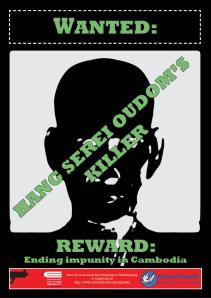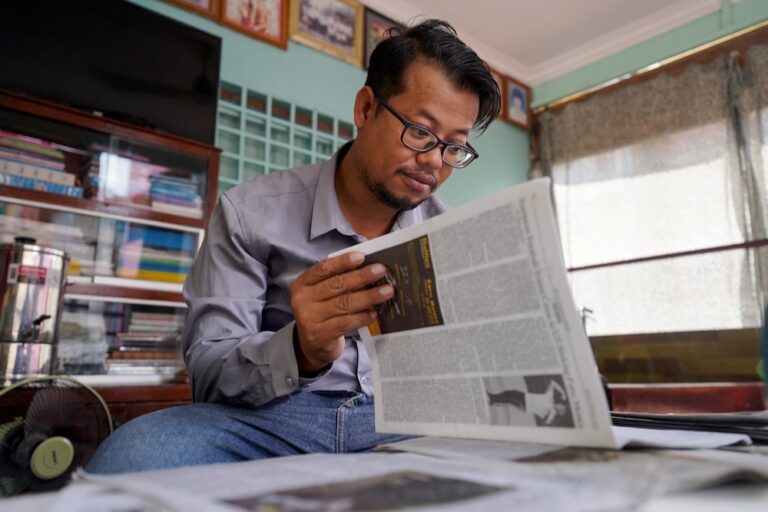On 11 September 2012, Hang Serei Oudom, a journalist reporting on illegal logging activities, was found brutally murdered in the trunk of his car. Two years have passed, yet freedom of expression continues to be stifled, and a culture of impunity remains rampant within Cambodia.
Two years have passed since Hang Serei Oudom, a journalist reporting on illegal logging activities, was found brutally murdered in the trunk of his car in Ratanakiri province. Two years have passed, yet freedom of expression continues to be stifled, and a culture of impunity remains rampant within Cambodia.
Hang Serei Oudom is one of the 12 journalists that have been murdered in Cambodia since 1994, and one of 619 journalists killed globally since 2004. Within Cambodia, each of these murders has been met with impunity. The failure to pursue the investigation and charge Hang Serei Oudom’s murderers, despite the seriousness of the crime, highlights the continuing power of the elite over the judicial system. Beyond this, Hang Serei Oudom’s death, along with many others, was used as a warning to others around the country, and was a direct attack on the right to freedom of expression.
Unfortunately, violence and intimidation are just one means used to undermine freedom of expression in Cambodia. This has been demonstrated by the RGC’s recent announcement of a pilot program to censor online content, which cites China and Syria as inspiration for the reform. The internet is essential for sharing knowledge and ideas, the growth of social movements, self-expression, and flagging human rights abuses. Most importantly, the internet permits democratic discussion that is restricted in other spheres. Instead, the new laws move to censor discussion and remove content that is critical of the ruling political party.
According to Freedom House’s 2014 Freedom in the Press Ranking, China and Syria rank 183rd and 189th out of 197 countries respectively, while Cambodia ranks 147th. Syria for example has seen 67 journalists killed since 2004, second only to Iraq. While these journalists were not necessarily murdered, following this path in Cambodia flags serious problems for the future of the right to freedom of expression.
In the two years following Hang Serei Oudom’s death, it appears that little progress has been made. But Hang Serei Oudom represents more than his murder. He represents more than a repressive environment in which it is often difficult to voice the truth. If we accept Hang Serei Oudom’s death as a symbol of impunity and a violation of the right to freedom of expression, we contribute to the culture of fear that his murder was intended to create. Instead, we must highlight that Hang Serei Oudom represents the strength and determination of so many individuals across the country to fight for truth and justice.
Sami Shearman, CCHR International Intern, contributed to this blog post.

One of CCHR’s campaign posters from our 2013 Impunity CampaignCCHR


